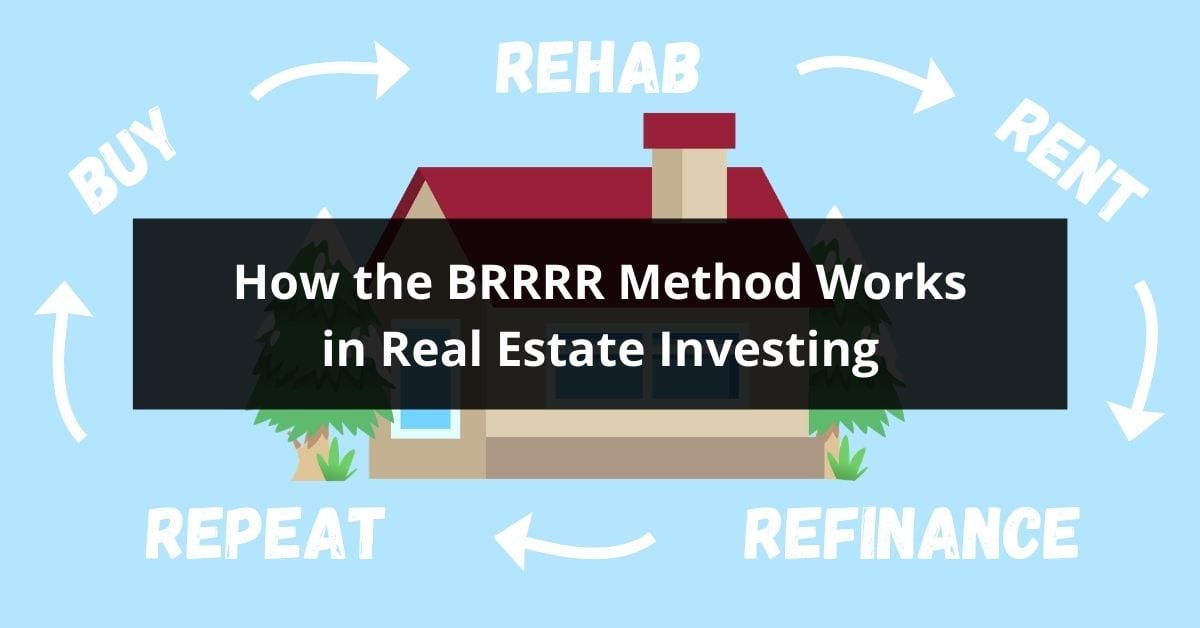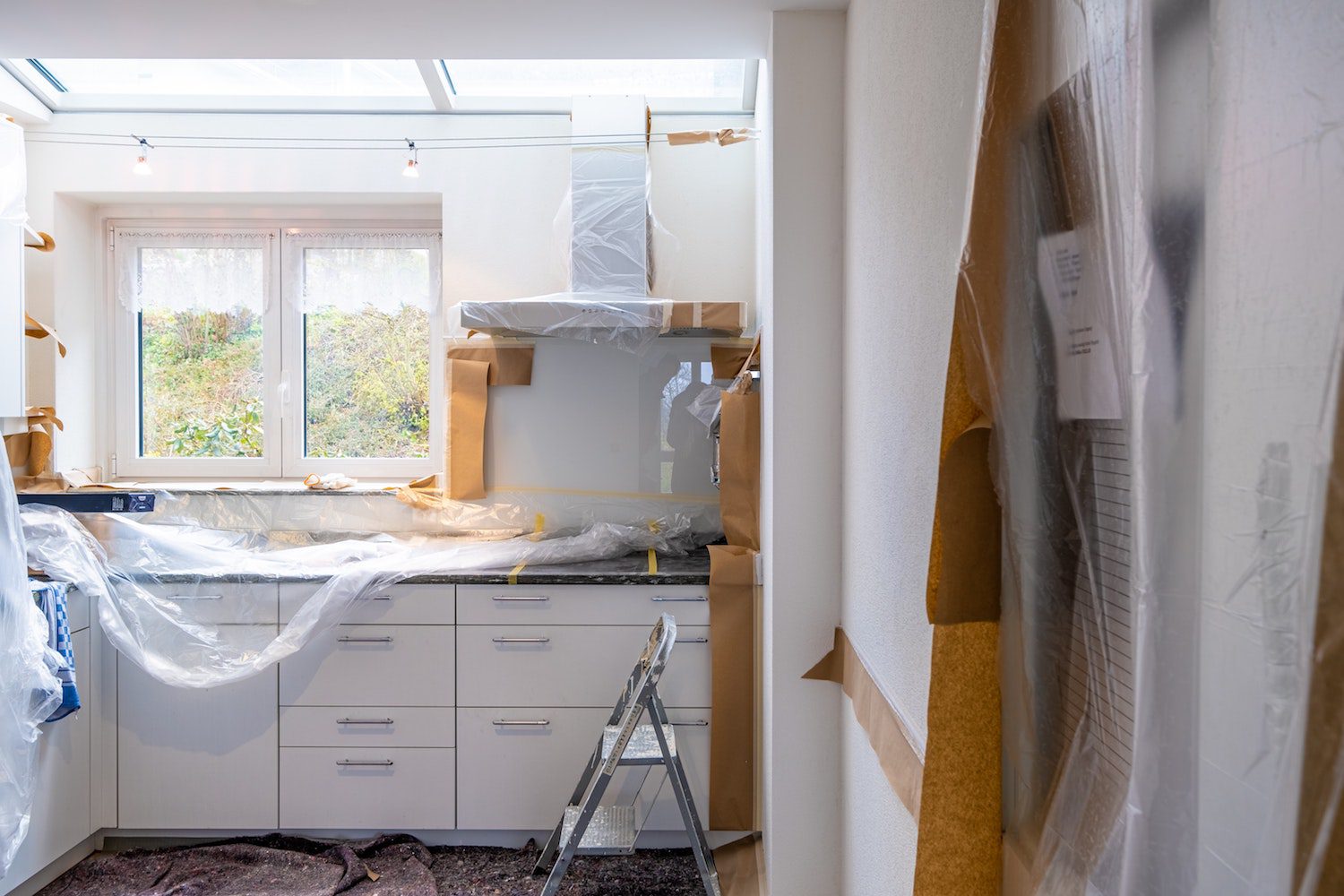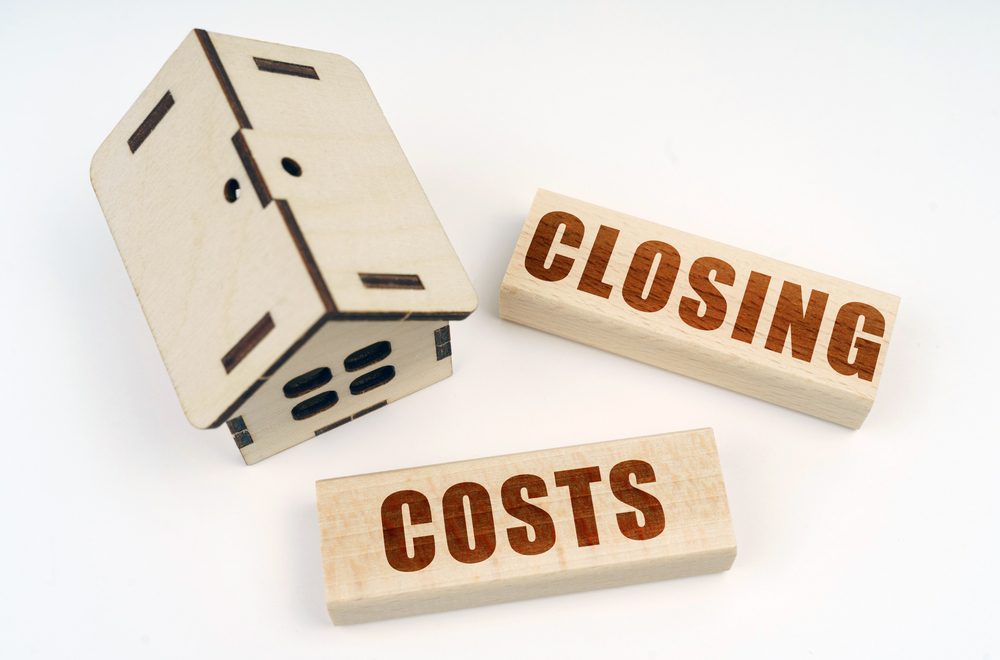Author: KP & Associates
Nov 10, 2016 / Buying
Joint home ownership: What you need to know.
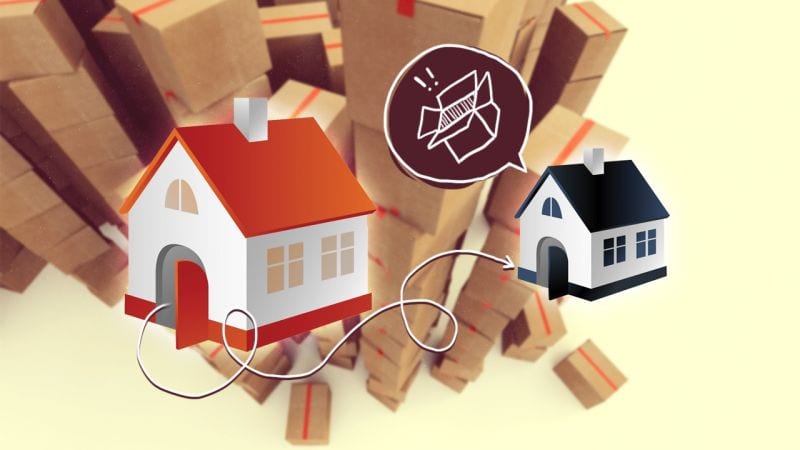
Co-ownership or joint ownership, isn’t a new idea. But with housing prices on the rise, joint home ownership is proving to be an affordable option for many new home buyers and families.
There are many reasons to consider jointly owning a home. Beyond affordability, people can enter a joint housing agreement to maintain a certain lifestyle; not to live alone, or hope that by combining resources they can live a little more ‘upscale’.
Sharing the financial load (the deposit, mortgage payments, monthly expenses and fees) can be a huge help. And while sharing the financial responsibility, joint ownership helps build home equity.
While there are many pros to sharing a home-purchase it does require sober second thought and asking good questions.
As an experienced real estate agent, the best piece of advice I can provide is to hire an experienced lawyer that will draw up a cohabitation agreement. Think of it as a pre-nuptial agreement where both parties are protected.
Co-ownership agreements can be as loose or as detailed as the owners need, covering contingency plans such as one owner getting sick to what happens if there is an unexpected flood. A detailed agreement can layout the decision-making process for resolving maintenance disputes to guidelines on potential irritants like noise, parties, guests, cleanliness and of course pets.
A well written cohabitation agreement will cover the following critical areas:
- Type of ownership such as Tenants-in Common. Whatever the choice, all owners need to be listed on the Title.
- Expenses – On-going (hydro, water, insurance) and unexpected (general and major home repairs) expenses should be itemized. It should also clarify the amounts paid by either party for the down payment and who pays what portion of the mortgage, real estate taxes and home repairs.
- An exit plan. What if one owner passes away, is relocated to a new city, gets married, or is ready to fly solo? Will the other joint-owner now become the sole owner, or do they need to buy out the heirs? A lawyer may also recommend purchasing life insurance on each joint owner as a way to pay off the mortgage in case of death.
All this requires some serious and transparent discussion between all parties and the sharing of intimate financial information. And I would recommend hammering that out before looking for a new home or finding a lawyer. It always pays to do your homework.
Since obtaining a mortgage is key to purchasing a home, looking for a independent mortgage agent might be advantageous.
Here are some items to discuss and how they can impact your agreement:
- The mortgage rate could be tied to both credit reports. One person’s bad credit rating could negatively affect the mortgage terms or even the interest rate on the loan.
- Since both parties are listed on the mortgage, that makes both responsible for making payments – on time in full each month. If one party falls behind, you could both be reported to a credit agency for non-payment.
- Even with an equal split on the monthly mortgage payment, a lender sees it differently as if entire mortgage payment each month is yours alone. This can increase the debt-to-income ratio higher and make it difficult for qualifying for other loans.
- Exit planning on a mortgage doesn’t hurt. If one party wants out of the deal, removing names from the mortgage, requires selling the home or refinancing the loan under a single name.
There are many wonderful joint ownership success stories. And it pays to be realistic as to how long you want to share jointly. Situations change. So consider giving your agreement a tentative ‘renewal date’ – to allow each owner flexibility to do something else or re-new the current situation.
Home ownership without carrying the sole burden of all the costs can prove a huge boon. As your realtor, we’re here to help you navigate all of the options of home ownership.
If joint-ownership is on your horizon, contact us today and let’s get started!
Our team of real estate sales professionals is committed to finding you, your dream home. Whether you’re looking to buy or sell, the Karen Paul team is here to help with any questions.
Credit to posts by Investopedia & Money Crashers.
Interested in learning more? Send us a message here and we’ll be in touch with you soon after.
Oct 19, 2016 / Your Home
Tips To Winterize Your Home: Furnace Maintenance
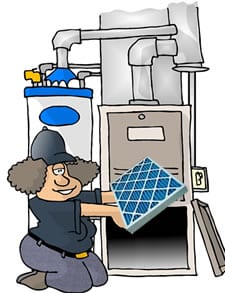
While regular furnace cleaning and maintenance helps to prevent problems, it also keeps your furnace operating efficiently. An efficient furnace reduces energy waste and means lower utility bills.
ClimateCare is Canada’s largest network of independent heating, ventilation and air conditioning (HVAC) systems contractors, and they were kind enough to share this information with us.
How can you be sure your furnace needs repairs?
Homeowners should be checking the furnace filter on a regular basis, and changing it monthly during the winter. Not only will it keep the air clean, but will also reduce energy costs. But how does one know if the furnace needs repairs?
- If it’s cold in your home even though the furnace is set to a toasty warm level, your furnace probably needs repairs.
- If you hear a strange sound coming from the furnace, be it a rattle, a squeal or an out-of-place hum, your furnace probably needs repairs.
- If the temperature in your bedroom is sharply different from the temperature in your children’s bedrooms, your furnace probably needs repairs.
- If the furnace turns on and off repeatedly without reaching the desired temperature in the home, your furnace probably needs repairs.
- If you are being proactive definitely call us for a maintenance service call before these problems arise!
Is it OK to skip furnace maintenance?
Some homeowners don’t think long about the consequences of skipping furnace maintenance. Most likely a furnace will be fine for another year, unless of course it’s not. Problems develop for all kinds of reasons.
Early detection is the key, and an annual furnace check-up will identify little problems before they become disasters. If you compare it to ‘oil changes for your car’ regular maintenance from a qualified HVAC technician goes a long way to extending the life of your furnace.
What can go wrong?
- POISONOUS AIR FLOW: One of the most extreme consequences of skipping annual maintenance is the risk for carbon monoxide poisoning.While completely preventable, more than a thousand people die every year from it CO2 poisoning.
It is a colorless, odorless and tasteless gas that is present when fuel burns in places like your gas furnace or fireplace.
And to make sure your family is protected in the event of a problem with your furnace, always make sure you have a working carbon monoxide alarm in the house. - Debris Build-up: Not toxic, but not good either. Skipping furnace maintenance (and the equipment inspection that comes with actual maintenance tasks) leaves debris to build up throughout the HVAC system.
It doesn’t take long for the filter to become clogged with dust, dirt and debris, reducing airflow, air quality and making your system work harder than it should.
Once your air filter is no longer capable of keeping allergens and particles out, the furnace itself, along with the air ducts and registers, become coated with nasty airborne particles. And if they’re in the ducts, they’re in your lungs. - Uncomfortable drafts: Annual maintenance helps your furnace maintain consistent airflow and heat distribution throughout the house. Every time you skip a maintenance cycle, the cold spots in your home become more noticeable.
Cold spots signal stagnant air, and stagnant air can lead to mould behind the paint or wallpaper on your walls and cracking of perishable materials like caulk around windows.
To combat this, you’ll crank up the thermostat. Your bills will snowball and drain the bank account faster than you expect.
What’s included in most Furnace Maintenance Plans?
- Clean or replace furnace air filter
- Clean furnace components, including blower assembly, fans, pulleys and belts
- Check electrical connections & wires; pipe fittings & gas supply line; heat exchanger for cracks or corrosion
- Perform a 26 point furnace maintenance system inspection
A well maintained furnace can last up to a quarter of a century, but while regular maintenance is the best way to prolong the life of any home appliance, it isn’t a guarantee your furnace will never have a breakdown.
We would be thrilled to provide you with information that will enhance your home living experience.
Our team of real estate sales professionals is committed to finding you, your dream home.
Whether you’re looking to buy or sell, the Karen Paul team is here to help with any questions.
Note: If you have been approached by door-to-door furnace salesman, contact HRAI Canada for more information.
With thanks to Climate Care for the information.
Interested in learning more? Send us a message here and we’ll be in touch with you soon after.
Oct 6, 2016 / Your Home
Pedro Giorgana Talks Thermal Home Inspections

It’s always been my view as a realtor, that every real estate sales transaction is better with a completed home inspection. Our job as realtors is to verify the facts such as lot sizes and taxes, but to ‘lift the veil’ on a home, you really need a home inspection.
Home inspections need to be completed by a certified, insured and in my opinion experienced home inspector. Ideally home inspectors that focus in a single community are also familiar with and look for similar issues in neighbourhood homes built in the same era.
The home inspection is usually the responsibility of the home buyer. However, it’s not uncommon, particularly in hot markets, that a seller will have a home inspection completed prior to listing, so not to impedge a sale. I’ve even been to open houses, where the home inspector has been on hand to answer any buyer questions, although that’s rare.
I like to closely follow the technological advances or disruptions in real estate and related industries. So, I was intrigued when I received this article from Pedro Giorgana on the role Thermal Imaging is playing home inspections. Pedro agreed to be one of our guest bloggers and I am pleased to be reprinting his article ‘How A Thermal Imaging Home Inspection Can Make a Difference’.
____________________________
Pedro Giorgana is a fully certified and insured home inspector offering a complete range of building and home inspection services, including thermal imaging. Pedro can be reached at 289-928-5689 | pedro.giorgana@inspechomes.com |InspecHomes
How A Thermal Imaging Home Inspection Can Make a Difference
More and more home buyers are requesting a thermal imaging home inspection for their potential properties. Thermal imaging home inspections have become very popular because they are non-invasive and make locating problems within a home much easier.
Thermal imaging also allows the home buyer to actually see the shape and size of the problem, rather than simply learning that it’s there! It not only saves the home buyer and realtor from dealing with unforeseen issues down the road, but peace of mind and security about the home being purchased.
What can a thermal imaging home inspection find in a home?
Water Leakage
Exterior water leakage can cause serious problems in a home. A thermal imaging home inspection can reveal wet areas that may otherwise be hidden from normal view. Stopping this problem before it gets worse is very important. An exterior water leak that is allowed to continue can cause rot in wood and other materials as well as lead to mould growth.
Points of Lost Energy
A thermal imaging home inspection can also identify areas in a home, that if repaired, could help reduce utility bills.
Missing insulation or un-insulated walls can lead to a loss of hot or cool air during heating and cooling seasons. This can lead to higher utility bills as a home’s furnace or air conditioning unit tries to make up for the loss.
Pipe Leaks in a Home
Not all pipe leaks start out as a noticeable issue. The thermal imaging home inspection can reveal a leaky pipe, even if the leak is still small. Correcting the problem right away is very important to prevent serious water damage situation later. Thermal imaging can identify the origin of a leak, saving a plumber time on the repair.
Electrical Components Overheating
Overheating electrical components can pose a serious threat to the safety of a home and its inhabitants. A thermal imaging home inspection can identify problem areas that could come from overheating electrical components before they turn into an emergency situation. Although any home can benefit from a thermal imaging home inspection, older homes with aging electrical components and wiring may get even more out of the service.
If you have questions on real estate transactions or home inspections, I would be thrilled to answer your questions.
Our team of real estate sales professionals is committed to finding you, your dream home. Whether you’re looking to buy or sell, the Karen Paul team is here to help with any questions.
Interested in learning more? Send us a message here and we’ll be in touch with you soon after.
Sep 29, 2016 / Community
4 Tips to hosting Thanksgiving dinner with ease

Hosting Thanksgiving dinner, is usually the warm-up to the big event – Christmas dinner.
But it seems to me that the whole point of having the entire family over for a big event, is to be able to enjoy it with them. It’s not fun hosting a big family dinner only to be totally run off your feet trying to address the whims of every guest.
Having hosted many of these types of occasions, I learned in short order to make sure the host plays too. And that means: Simplifying and Setting Limits. Just because someone got the great idea to start a marathon family Monopoly game 5-minutes before dinner, doesn’t mean it should happen.
When I plan large family feasts, I like to picture ‘The Order of Good Cheer’, (photo below) the first winter feast of Champlain and his men in Port Royal, Nova Scotia.
Whether I am hosting or not, I love pouring over cooking magazines, when I’m not checking out real estate magazines.
And this month of course, most Canadian magazines are sharing their ideas on prepping for the BIG Thanksgiving dinner. Some ideas were pretty interesting and maybe not so new, others were just plain smart and those are the ones that I’ve listed here. I hope you find them useful.
FOUR hacks or tips for hosting a this years’s Thanksgiving Family
extravaganza with ease and grace.
Make Dessert – Potluck
Best idea for 2016! I’m sorry that I never thought of it earlier.
Not only can the entire family help out but you can easily slip-in store bought goodies with Aunt Martha’s pumpkin pie. If everyone brings a desert and that includes ice cream for the kids, that’s half the meal done. And think of it – absolutely no organizing.
Expanding on the potluck idea, set up a dedicated dessert table in another room complete with dishes, cutlery and extra serviettes (maybe paper). That way you don’t have to clear the main table before the next course.
Have an Emergency Stain Fighter’s Kit On Hand
What a great idea. Talk about being prepared.
When a spill happens and it will, instead of racing around for cleaners or shouting orders, have a spill toolkit ready with salt, wine away, club soda and a couple of rags, strategically placed so that someone can grab it.
More cleaning thoughts.
I never understood the necessity of having a deep clean before guests arrive. Yes, if you are having guests stay overnight, but let’s be honest, if you’re having a hoard of guests for dinner, you’ll probably need to clean afterwards.
De-cluttering and removing valuables and breakables is a must. In fact, I schedule my annual day to de-clutter the hall closet just before big family events. At the same time I make sure there are lots of hangers and extra pairs of inexpensive slippers in case it’s really rainy or dirty and people take off their shoes.
Get those helper’s organized with a list
Give-in to the do-gooders – they want to help. Much as you don’t want help, there are always those that want to be involved rather than visit with family.
So create a to-do list ahead of time to keep them at bay. They can keep tabs on the refreshments, get appetizers ready and anything else that will free you up from being chained to the stove.
KISS.. simplify everything
It’s oh so easy to fall into the trap, it wouldn’t be Thanksgiving if we didn’t have ……. Trust me, I’ve had plenty of Thanksgiving’s with missing elements and they were wonderful.
If something is really, truly important, then asking someone else to prepare it is the best option. Or, going store-bought – because no one will remember it the following year. Gravy is probably the best example of store-bought goods doing their job.
Who still makes gravy from scratch? It’s easier to experiment with the multitude of different gravy mixes and see what works best for your family. Gravy is one of those items that is judged because it’s been missed, not because it’s from a can.
_________________________
It’s not always easy for a large family to get together AND all get along. By preparing ahead, simplifying, focusing on the positive and steering clear of hot button issues, you’ll be able to enjoy Thanksgiving with your family.
On behalf of the Karen Paul & Associates real estate team, I’d like to wish you and your family a very Happy Thanksgiving long weekend!
Our team of real estate sales professionals is committed to finding you, your dream home. Whether you’re looking to buy or sell, the Karen Paul team is here to help with any questions.
Credit to posts by Kitchn, Moore Maguire Real Estate Group, Canadian Living & Chatelaine
Photo credit: ‘The Order of Good Cheer’ Nova Scotia 1606 | by Charles William Jefferys (1942)
Interested in learning more? Send us a message here and we’ll be in touch with you soon after.
Sep 21, 2016 / Selling
7 Helpful tips to Downsize Your Own Home

Getting ready to downsize? We’re here to help. As real estate agents, not only do we chat about downsizing, but we’ve experienced it before with many of our clients. And after 35 years of real estate transactions, that’s a lot of downsizing.
The biggest thing I can say about downsizing is that attitude counts – that’s positive by the way. Whether you are doing your own home, or assisting an elderly relative, having a positive attitude that you’re starting a new adventure, or saving a few bucks so you can travel more – will make the job a whole lot easier.
There’s a lot of information and tips on downsizing, including my recent post: 4 Tips: Make Downsizing Someone’s Home Easier, for people who are downsizing their parent’s home.
For this post I asked my real estate team “If you had to downsize your home tomorrow what are the top 5 things that you would do first” – we came up with 7.
Just like David Letterman – here’s our top 7 downsizing list:
#1: Take stock.
Before you do anything—even before you know how much space you are moving into, take an inventory of ALL your belongings. As you start to list the items, ask yourself, “if this was lost in a fire, would you replace it?”
At the end of this exercise, you’ll not only have a list but a sense of what is actually important to you – what are the things that you simply couldn’t live without, and what could be replaced as you downsize to your new living space.
#2: There is no good time.
Trust me. Don’t wait for a good time to begin. Certainly don’t wait for family members to offer assistance.
Don’t’ plan, organize or worry – just jump in. Try not to measure the progress or set time limits – all change is an improvement.
‘Thinning out’ is a great place to start. One morning a week tackle a closet or overflowing filing cabinet, your photos or books.
#3: Get some experience with non-emotional rooms.
Books, photos and paintings are emotional. Steak knives and mixing bowls aren’t.
The kitchen is a great room to start, no one needs 10 mixing bowls. Having a creative strategy is really helpful. One client of mine created kitchen-starter kits for all her grandchildren and neighbours children that were moving to their own new digs.
If downsizing to a condo, working through the garage should be the virtually the same. No one sheds tears for having to get rid of their snow blower, lawn mowers or ladders. And these are items that sell well on classified websites or community Buy and Sell Facebook pages.
And the person who comes to purchase your snow blower, might also be interested in other garage items. There may enough tools and extra gardening equipment to add to the kitchen-starter kits for the youngsters.
#4: Size matters.
Very few people can truly picture what a 13’X13’ room looks like.
With the measurements for the new place – take the next step to really get a feel for the new room. That means walking into rooms in your present home with similar dimensions and imaging whether or not two sofas will actually fit in that room.
Yes, you can block it out on a furniture map, but there’s nothing like seeing it for real yourself.
I’ve even recommended to empty a room and fill the same space with the furniture intended for the new location. It’s often a reality check – that something has to go.
#5: Use garbage as the last resort.
Beyond recycling, reusing, selling, donating or gifting items to relatives, this is your time to really become creative in disposing of your treasures. I thought these ideas were pretty inventive.
- Most charities don’t want non-working Christmas lights and old TVs. Having said that, there are Repair Cafes, or community teaching organizations that are eager to repair your broken items and resell them.
- Every dry cleaner will accept your hangers with glee. Small amounts of cleaning supplies can be donated your cleaning lady who is definitely going to use them.
- Some local libraries will accept used books for their foundation fundraising efforts.
- In some communities, setting items on the curb with a sign that says “Free! Help yourself!” will make items miraculously disappear. I’ve even picked up some curb-side treasures.
#6: Banish the ‘Maybe’ pile
Label three bins To Keep, To Sell and Charity. Don’t even think of starting a maybe pile. If you haven’t decided where it fits, that’s one thing, but to put it in a maybe pile just postpones the decision.
Not allowing yourself the option of storage at a relatives, or even a locker really helps force decisions.
#7: Just be nice.
And finally, if you are downsizing for two, be nice to each other. Downsizing is an emotional experience and two people don’t always agree – that’s just natural.
If your partner is having difficulty, start with your own stuff and lead by example.
Another suggestion I often make is that each person make a list of items they love and simply can’t live without. You may be pleasantly surprised how many items overlap and that very little horse trading is required.
You can’t take it all with you, so having a list helps objectify things. Hiring a professional company can also be helpful. Not only will they provide an objective opinion but will save you from moving that 1970s sewing machine!
We would be thrilled to work with you and help you downsize your home. Contact us Today!
Our team of real estate sales professionals is committed to finding you, your dream home. Whether you’re looking to buy or sell, the Karen Paul team is here to help with any questions.
Interested in learning more? Send us a message here and we’ll be in touch with you soon after.
Sep 15, 2016 / Your Home
4 Tips: Make Downsizing Someone’s Home Easier

Downsizing.
Even the word sounds negative. But it doesn’t have to be a horrible experience, in fact framed as working towards a new adventure, saving money or having less upkeep can keep the downsizing process on the move.
Whatever your reasons (buying or selling the family home) for moving or downsizing, attitude counts. And the more upbeat you are, the more help you’ll garner and the smoother things will go.
As real estate agents, we chat a lot about downsizing. And for many clients with aging relatives, downsizing has become an important topic. In fact, it’s such a big topic, that I’ve divided the topic into two different posts.
In this post, I will share ideas and tips for downsizing someone else’s home whether it’s your elderly parents, aging neighbours or favourite aunt. In the next post, my real estate team and I share our hacks for downsizing your own home.
When it comes to downsizing, if you’re worried that you don’t know where to start, don’t worry, we do!
How to help someone downsize their home.
Allow lots of time
Whatever else, be prepared to dedicate some time to the process.
I agree it’s far more efficient to plough through the house in one go, but that can be both physically and emotionally stressful for everyone involved. If it’s a senior’s space you are downsizing, think months, not days.
Start by tackling one room (like the kitchen) or one project (like photos) at a time. Two-hour stretches is ideal, probably for you too. Keep in mind that your work doesn’t end after a two-hour sort. There’s the packing, tossing out and taking away element of downsizing as well.
Ask questions that require Y/N answers
Taking a moment to properly frame your questions so they require yes or no answers are much easier to manage then open ended questions. Dialogue along the lines of:
‘ I’ve got your best frying pan, a large pot and your kettle together, how does that sound?’ or
‘ I went through your scarf drawer and chose the 5 that I think suit you the best’
is easier to manage over: “Which one of these do you want to keep?”
For many of us the newest and shiniest isn’t necessarily the favourite and the one used daily. What may seem old and useless could be the source of comfort and therefore worth moving, such as my favourite coffee mug, which I’m never letting out of my sight.
By handing a sense of control over the family member who is ultimately the decision maker, you are putting them in the driver’s seat and quite possibly making it easier for them to give away more things.
Breaking through the sentimentality
Getting rid of sentimental treasures can make for difficult conversations.
But you can help your senior decide what’s really meaningful by asking them:
“If you could take only 3 pieces of artwork or 10 books which would they be?”
That helps identify which ones are more meaningful. The chosen ones you can take, the others then become negotiable.
Photos, memorabilia and collections take up a lot of space and need to be culled.
Begin by getting the story behind the objects (where did it come from, when was it last used) and make sure it’s noted and that the story follows to the next person who uses it. This allows the importance of the memento to carry forward.
It’s hard to enjoy sealed boxes of photos. Having them digitized and organized into albums is really affordable. Albums or books can centre around themes, events, or a book dedicated to each family segment. Sorting and organizing photos into groups might be something that can be delegated to another family member.
Keeping an album of paintings is also an alternative. I agree that having photos of paintings, isn’t the same as owning, but it’s a space saving way to continue enjoying without owning.
Let the legacy start today
If an item is meant to be a gift, encourage giving it now rather than the next milestone. Suggest that your relatives enjoy the feeling of giving right now with the benefit of seeing others enjoy what they hold in high regard.
And if it’s simply too much, hire a professional. There are many agencies that will make your downsizing experience a smooth transition. Connecting you with moving services, is part of helping you sell your home. Sharing information is what real estate agents do best!
If you would like more information on downsizing, we would be thrilled to work with you. Contact us Today!
Our team of real estate sales professionals is committed to finding you, your dream home. Whether you’re looking to buy or sell, the Karen Paul team is here to help with any questions.
Interested in learning more? Send us a message here and we’ll be in touch with you soon after.
Sep 8, 2016 / Your Home
Hacks To Prep Your Home for Back-to-School

Someone should declare ‘Back-to-School’ a season.
After a summer of fun and frolic, everyone thinks of September as back down to business, whether it’s back to the gym or art class.
For families, ‘back-to-school’ is a really busy time. And making sure your home is physically well organized can make a difference.
Realtors love houses and we are always looking other homes, magazines and online for new tips and ideas that we can share with our clients.
Sometimes a minor improvement can make all the difference.
Our team of real estate agents, did some research and brainstorming on back-to-school and came up with these hacks – on getting your home ready for back-to-school.
We hope you find one or two useful.
Hack#1:
Go beyond the standard calendar – go for an entire wall
At the centre of every family is a calendar, where all the important and maybe not so important events and dates are noted.
Step back a moment, and think about expanding the family calendar to include a message board and enlarge it so that it covers an entire wall. Think of it, a message wall will not only help keep the family organized but provide a space for everyone to share what’s going on in their lives.
Consider dedicating an entire wall in a high traffic area. Cover it with magnetized panels, cork or peg board so that it can house not just the family calendar but important artwork, celebrations of homework awards, birthday invitations, school photos – and everything else that says this is a busy family.
This may also be the best place to create an individual file folder or shelf for each family member for the important papers, such as signed permission forms or lunch money.
Hack #2:
Create a physical space called the Homework Zone
As kids enter the higher academic years, providing a proper set-up in their bedroom makes sense. They need a dedicated quiet space away from the family din to study.
But in the early years, creating a Homework Zone, perhaps close to the kitchen, where kids gravitate anyway, allows you to supervise, pause for a question, practice for a spelling test, while getting on with family chores.
Stocking it with pens, pencils, magazine files, calculators, and loose paper will eliminate ‘search parties’ and help keep the kids focused. Adding pegboard to the walls will create extra storage for the not-so-often used things like paintbrushes, markers, glue and all the glitter stuff.
A homework zone will cut down on clutter in the house and make schoolwork easy to find – theoretically.
Hack #3:
Don’t have a mudroom? Build your own.
The glorious mudroom. If you can’t dedicate a separate room at the front or back of the house try carving some space in your home that can service as one. Even removing the doors from a closet will do the trick.
Provide individual spaces (cubbies if you will) for every family member. This is for knapsacks, jackets, sports and music equipment.
Adding bins, baskets, and lots of hooks will help keep things organized under the assumption that things will be put in their spot, if there is a place for it.
Hack #4:
Establish a dedicated lunch-packing station
Designate an area in your kitchen for all your lunch packing supplies. It can be a drawer, cabinet, or even a cart. Stock up on bags and containers, napkins, plastic silverware, condiment packets, wet wipes and maybe even a few pre-packaged snacks, including breakfast granola bars for those really busy mornings.
If you’re a family that uses containers consider assigning a different colour to each family member. It helps to keep things organized, accommodates for allergies or food preferences, and bonus for most parents, allows them to track who ate what for lunch.
And finally, give yourself some time to get into the swing of things. Organizing experts suggest that families need the entire month of September to ease into back to school – because after all – it’s not just school, it’s back to everything else as well, including regular mealtimes.
Strapped for ideas? Have you looked at Pinterest? It’s a wonderful social media platform full of great ideas and solutions or hacks that don’t require buckets of money.
Is your family going back-to-school? Are you looking for ideas on how to make your home structurally more organized?
Give me a call, I’m always very happy to help out.
Our team of real estate sales professionals is committed to finding you, your dream home. Whether you’re looking to buy or sell, the Karen Paul team is here to help with any questions.
Interested in learning more? Send us a message here and we’ll be in touch with you soon after.
Sep 1, 2016 / Your Home
City Living: Can urbanites live off-the-grid?

The other day, someone asked me if I would be willing to live ‘off the grid’. The romantic notion of moving to the backwoods and living off the land started to take shape in my imagination until I realized that it meant leaving my blow dryer and espresso maker behind.
Definitely anyone that is handy and currently living on a 5 acre plot outside the city will find transitioning to ‘off the grid’ a whole lot easier than city folks.
In fact, for city dwellers, the idea of going off the grid, while a nice concept, is not entirely attainable. In many places in Canada it’s not just space limitations it’s the municipal bylaws that are holding us back.
But that doesn’t mean we can’t think about reducing our footprint. There are loads of things that city dwellers can do to start living life ‘less on the grid’.
The experts suggest that living a more sustainable lifestyle is a more about the journey than a destination. And it certainly doesn’t have to be an all or nothing proposition.
Here are a few ideas for urbanites:
Less is More
As real estate agents, we talk ‘de-cluttering’ to almost all of our sellers. Everyone seems to think they have too much stuff. The trick then is to purchase less in the first place. For every new acquisition, ask yourself, ‘Do I really need this?’ or ‘What am I prepared to get rid of, to make room for my new purchase?’ Bonus, if you buy less, you’ll have less to de-clutter.
Turn-It-Off
If you aren’t using it, it doesn’t need to be on. Many of us run our household appliances (TV, lights, air conditioners) night and day. Following your hydro bills and mindfully cutting down your power intake by making due-with-less, will not only help the environment but your pocket book.
Home Efficiencies
Many people wrongly believe that off-the-grid homes are cold, dark, shaky and damp. Quite the contrary. Off-grid homes are vastly more efficient: better insulated, more-responsibly heated, more-intelligently-lit, and better designed to take advantage of passive solar energy. Consider having a professional audit done on your home to see where you can gain efficiencies. Even installing a single solar panel is a positive step.
Another option is to consider a Ontario Home Energy Audit. It appears that the $5,000 renovation grants are no longer available but there are numerous other grants and rebates available through the government of Canada. Keep in mind that these agencies require positive proof that the work was complete, which usually means before and after photos and receipts.
Getting ‘Round Town
As urbanites, we can live beyond our cars. Public transportation, walking even biking are options. Not taking your car requires a little more planning, time and sometimes a creative idea. For example a brisk walk to work could do double-duty as a morning workout.
Gardening
Nothing could be finer than growing your own vegetables. If you’re not a gardener, enticing your neighbour into extending their wonderful garden unto your property might be an option.
Many cities, certainly the City of Burlington has, have created community gardens. There is an application process and a few rules, but an easy way to grow a few vegetables particularly if you are an apartment dweller.
Many urban gardeners have turned their front lawns into ‘wild garden delights’, often a mixture of flowers, plants, herbs and the odd tomato plant.
There’s no debate which is better for the environment. Gardens are not only more attractive, they provide homes for birds, insects and rodents and don’t require the use of an annoying lawnmower.
Save On Water
I’m not advocating ‘shower with a friend’ but there are ways to reduce your water consumption. Start with a rain barrel for watering the garden. Gardening expert Ed Lawrence told CBC listeners that taking a 5 gallon pail into the shower was a great way to collect water and they would be absolutely shocked as to how much water went down the drain.
Working towards a smaller footprint will open your eyes to things that you’ve been taking for granted, and help you understand the concept of consumption. Small changes can have large consequences.
Wanting a smaller footprint, takes time, planning, creativity, but it can also be a whole lot of fun.
Our team of real estate sales professionals is committed to finding you, your dream home. Whether you’re looking to buy or sell, the Karen Paul team is here to help with any questions.
Interested in learning more? Send us a message here and we’ll be in touch with you soon after.
Aug 25, 2016 / Buying
Moving Made Easier : 7 Great Ideas

It may have been a while since you moved. If so, the task probably looks pretty daunting.
Believe it or not, real estate agents chat about moving almost as much as we do homes or taxes. Whether it’s moving-in or moving out, there’s lots to do, and there’s simply no point in denying it, it’s stressful.
There are hundreds of moving checklists online that can be easily adapted for any given situation.
Our real estate team took a different tack. We chatted about some of the experiences our clients had and came up with 7 tips that may not be on any list, but we think will make a difference in your move.
Start a Moving Binder.
Hands down, we thought this was the single best idea.
Put everything down in one single place that is easily accessible to the entire family. And keep it organized with separators for different topics such as ‘new home/old home’; sleeves for storing your receipts, estimates, copies of emails and inventory of items. Don’t forget adding reams of paper for making notes.
Since a lot of communication nowadays is done via your computer, create a new folder in your email program and store all related moving emails in that folder. For internet searches, create a separate bookmark folder to store informative websites. In the ends it’s about having easy access, when you found something really interesting.
Whatever you do, don’t send an email or make a phone call without your moving binder in your hand.
We don’t promise that a moving binder will make your move stress free, but it will help reduce the number of things you have to remember and keep things in one place.
At the same time, consider starting a suitcase or lock box to store your important papers (passports, insurance documents) so they are in one place, easy to find and most importantly, won’t get lost.
Moving Companies.
Most of us are beyond asking our buddies to help us move and are ready to hire a professional. Choose a professional and reputable moving company and be very clear on the services they offer.
Before you contact them make sure you know how many rooms in your home and the type of furniture (beds, appliances, couches). Most moving companies will want to know how many levels and you could surprise them by also knowing the total number of stairs.
Some moving companies are willing to provide quotes over the phone, but it never hurts to get it in writing. If you are particularly concerned about your home, ask for a walk-thru so that there won’t be any surprises on moving day.
Everyone moves at the end of the month and on weekends, so moving on the 7th or 21st could save you some dollars.
Scheduling the time of the move can be a little complicated and involves your solicitor, who will know the exact time you can expect to get the keys to your new home. From there you can work backwards. Most moving companies can gauge how much time they need for certain sized homes.
Don’t be chintzy on the supplies (boxes, tape, Bubble Wrap, and permanent markers) they can always be re-used or donated to the next friend who is planning to move. Don’t forget to order specialty containers, such as dish barrels or wardrobe boxes, which your mover can help you with.
Those were our main thoughts. But we have a few other notables that keep cropping up with clients:
- Address Changes: If you haven’t already, this may be the time to go ‘paperless’. Most companies offer a bonus when you sign on for an email notice over an envelope in the mail. Just in case, ask a trusted neighbour to keep a look out for mail after you’ve moved.
- Home Insurance: Don’t cancel your home insurance until your solicitor confirms the title has been officially been registered to the new home owner. It’s only one day, and anything could happen during the move.
- Moving Obstacles: If you plan to visit your new home to measure the room sizes or check for draperies, you might also take a moment to check the width of the door-ways to make sure larger pieces of furniture will fit.
- Return Borrowed Items: While you’re de-cluttering no doubt you’ll find items that were borrowed once, a long time ago. Host a treasure hunt barbecue for your neighbours not just to say good bye, but as an opportunity ‘Return what you borrowed – find what you lent.’
- Chemicals & Toxins: Moving day is not the time to take all of the household chemicals properly (old paint, caustic cleaners, etc.) that you’ve been storing to the local Toxic Waste Centre. That should be done when you are de-cluttering.
Getting to know your new neighbourhood can take time. Helping your family, in particular your kids transition through the move can be time consuming. By getting referrals from your doctor, dentist, mechanic, druggist, even your hairdresser you will have a head start into settling into your new community.
As your real estate agent, our job is make the transition to your new home seamless. And while this might be only your first or second move, it’s not ours. We’re always happy to share our ideas and provide real estate tips.
Our team of real estate sales professionals is committed to finding you, your dream home. Whether you’re looking to buy or sell, the Karen Paul team is here to help with any questions.
Interested in learning more? Send us a message here and we’ll be in touch with you soon after.
Aug 18, 2016 / Selling
Home Evaluations – Calculating Your Home’s Square Footage

A home’s square footage is one of the factors a real estate agent takes in to account when completing a home evaluation. And if all houses were single-story square shaped buildings, calculating the square footage of your home would be a simple matter.
Your home’s square footage is relied on to estimate a home’s value, cost to construct and overall livability. So it is worth understanding exactly what square footage means and how it is calculated.
Matt Clawson, Houzz contributor, recently posted this great article: How to Calculate a Home’s Square Footage ‘Understanding your home’s square footage requires more than just geometry’.
We have edited it down and added our comments. To dig deeper, check out Matt’s original article along with the wonderful diagrams and photos he included.
_______________________
All square feet are not created equal.
There are basements, attics, garages remodeled into living spaces, and oversized storage rooms with poorly accessible corners.
However, for the most part, calculating square footage, is all about rectangles, with the help of a few formulas.
Calculations for the square footage of a home are taken from the outside dimensions of the structure (so exterior and interior wall thickness is included).
If your home exterior is easily accessible, you can do it yourself. By now, there’s probably an app or 3D technology that can do it for you, otherwise a 100-foot tape measure will do.
Walk around the exterior measuring each segment and drawing the shape as you go. If, like most homes, your exterior has a series of square corners, you will be able to take measurements easily at the foundation, rounding measurements to the nearest half foot and sketching the exterior shape of your home.
If there are overhangs or slopes making exterior measurements difficult, measure from the inside, and add the width of each exterior wall (likely half a foot, but you can check at the door jamb of an exterior wall).
The next step is to sit down with that paper and break the shape into a series of rectangles. (There are plenty of instructional videos available online if you’d like a hands-on lesson.) Then it’s a  matter of using simple (relatively speaking) math: Width x Length = Area
matter of using simple (relatively speaking) math: Width x Length = Area
You might find a triangle or two (Area = 0.5 x Base x Height). For example, a bay window with a pair of angled walls might (geometrically) be a pair of triangles with a rectangle in the middle.
Add up the spaces of each of your rectangles and triangles, and subtract any areas that should not be included in overall square footage (for instance, partially enclosed patios or exterior storage areas), and you arrive at the total area (square feet).
If Only It Were That Simple.
Angled walls are only the beginning of your problems. Some additional, generally accepted rules follow:
- Below grade, basements are generally not included. They are often noted separately.
- Attic areas are counted if conditioned in the same manner as the rest of your home, accessible from livable space and with ceilings that are at least 84 inches high.
- Stairs are included.
- Garages and other nonconditioned spaces are not included. Some garages have been converted into habitable spaces and are included in the square footage calculations.
- Condominium square footage is typically calculated using interior dimensions.
- When calculating the square footage of homes with second stories, second floor measurements sometimes need to be taken from the interior, investigating the overall shape of the second floor as it pertains to the first. The exterior wall thickness is then added and included in the overall square footage.
- Storage rooms are included in square footage calculations if the room is conditioned in a similar manner to the rest of the home and is accessible from living space in the home.
The professional tradespeople who did your home improvement renovations use the same formula (WXL=Area) to calculate square footage. However, those calculations are task specific and maybe not be accurate enough for your purposes.
If you feel you are up to the challenge yourself, break out the 100-foot tape measure and get to work. Simple structures are pretty straightforward. In complicated homes, you may want to save yourself the headache and ask a professional.
Want to know your home’s square footage? I’d love help out and complete home evaluation at the same time. I’ll even bring my own 100′ tape measuring tape.
Our team of real estate sales professionals is committed to finding you, your dream home. Whether you’re looking to buy or sell, the Karen Paul team is here to help with any questions.
Interested in learning more? Send us a message here and we’ll be in touch with you soon after.







